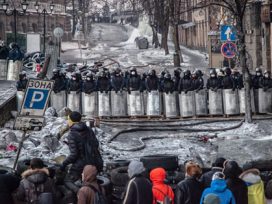
As the culture and the institutions of the Gutenberg Galaxy wane, Felix Stalder looks to commons, assemblies, swarms and weak networks as a basis for remaking society in a more inclusive and diverse way, which expands autonomy and solidarity at the same time.



